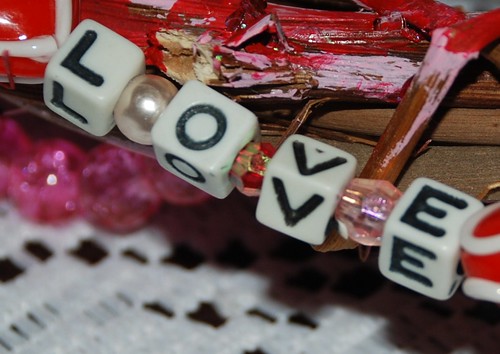
There is tons of discipline advice out there. If you’re new to positive parenting, it can be especially daunting to figure out how to handle certain behaviors. But discipline doesn’t have to be complicated. You don’t have to remember dozens of techniques, tips, tricks, and methods. All you really need is L-O-V-E.
L – Look for the reason behind the behavior. Take a moment to think about what could be behind your child’s actions. This will be important information going forward. Is he tired? Jealous? Needing instruction?
O – Open your heart. Remember that you may not like what your child has done, but you do like your child. Instead of reacting, make a conscious decision to pause and breathe, open your heart, and allow compassion and love to help you respond.
V – Validate feelings. Again, the way your child expressed his feeling may be wrong, but the feeling itself is never wrong. Let your child know that you understand how he is feeling, and empathize with him.
E – Explore solutions. Focus on teaching your child appropriate behaviors rather than punishing. Get your child involved in the process of making it right. Problem-solving is a skill that teaches your child responsibility for his actions and gives him a great tool for life.

You may feel certain behaviors warrant consequences. In this case, after you’ve disciplined with L-O-V-E, discipline with C-A-R-E.
C – Consequences. If problem-solving is not enough, a logical consequence may be appropriate. Your intent should be positive (to teach) and not negative (to get even or hurt). Ideally, consequences should be related to the behavior. For example, if your 4 year old throws a toy and it hits his sister, it is logical to take that toy away for a while.
A – Act with fairness. Again, the goal here is to teach your child how to do better next time. Taking away video games for a week is more likely to build resentment than to teach anything. It may help to wait until you are calm before issuing a consequence.
R – Reconnect. This is crucial for your relationship. Hugs, kisses, I love yous, and play should resume once it’s over.
E – Enjoy. Don’t bring the incident back up or nag your child about it. Reconnect and move on. This teaches your child how to make amends, and there is no need in dwelling on the past.
Here are a few other ideas to encourage good behavior:
– Let your child hear you say good things about him to others; never say anything bad about your child in front of him.
– Don’t label your child with words like “mean,” “naughty,” or “lazy.” Your child will internalize these words, and they will become part of her self concept.
– Notice the good things your child does. I’m not talking about lavishing on fake praise, but just a genuine, kind appreciation for things such as being nice to a sibling or completing a task will reinforce those positive behaviors.
Being deeply loved by someone gives you strength, while loving someone deeply gives you courage. – Lao Tzu


5 Comments
Thank you for this concise approach. I especially like that the first step is to consider why something happened or is happening. You mention internal states and needs, but their is another motivator for any action – that it is serving some purpose for the child. For example, a child may be acting out because they are seeking parent attention. In cases like that, it is important to teach a new way of getting that attention.
E.g. Dylan, if you want mom to stop and talk to you, you can tap me on the back and say, "Mom, I need you."
Oftentimes, unpleasant behaviour exists where appropriate skills have not yet developed.
Awesome post, thanks- I will be linking it to a post on my blog that I'm about to write! Very topical for me!
I just want to qualify your comments on 'enjoy' a little. Yes, don't nag and keep bringing up past incidents… but in some cases I've found that it's important to be open with a child if you're still upset about something from the previous day.
For example, I had a child in my room with whom I had a great relationship despite his ODD. One day I had cause to remind him that he'd bitten and kicked me yesterday, and told him I still felt sad and not safe near him. It led to an extremely productive conversation and a closer relationship. (He was 5 and very bright, so it was possible for him to talk about such things with me.)
Honesty is good; beating a kid over the head with something they can't change is not good.
Okay, here's the link back to my shout-out for you
http://auntannieschildcare.blogspot.com/2011/08/katie-bit-me.html
Thank you, Lisa! I completely agree with you!
Good point, Annie. Yes, honesty is important, and you gave a great example there. Thank you for the link!
Comments are closed.